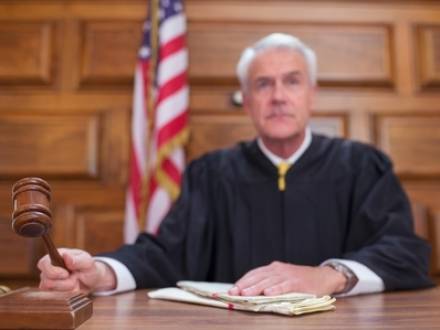Can an Illinois Judge Reject Your Plea Bargain?
 According to the DOJ, the overwhelming majority – 90-95 percent – of criminal charges are dispensed via a plea bargain rather than a trial with a jury or judge. A plea bargain is an agreement between the prosecutor and the defendant, typically involving a reduction in charges or a more lenient sentence in exchange for a guilty plea or cooperation. A plea bargain avoids a trial, expediting dispensation of the case and usually resulting in a lighter sentence.
According to the DOJ, the overwhelming majority – 90-95 percent – of criminal charges are dispensed via a plea bargain rather than a trial with a jury or judge. A plea bargain is an agreement between the prosecutor and the defendant, typically involving a reduction in charges or a more lenient sentence in exchange for a guilty plea or cooperation. A plea bargain avoids a trial, expediting dispensation of the case and usually resulting in a lighter sentence.
Accepting a plea bargain also takes away the possibility of a guilty verdict and a much harsher sentence handed down by a jury. If you, your attorney, and the prosecutor have reached a plea agreement, you may feel relief, knowing how your criminal charges will be punished. Before you start making plans, be aware that a judge can potentially reject a plea agreement, rendering it null and void.
Usually, if a judge rejects a plea agreement, you are entitled to a continuance, but the rejection of a plea is not appealable to a higher court. If you are facing criminal charges, it is important that your criminal defense attorney is highly skilled in negotiating plea deals for defendants. Your Wheaton, IL criminal defense attorney will discuss a plea agreement with you and then negotiate all the particulars with the state prosecutor.
Why Might a Judge Reject a Plea Agreement?
There are many different reasons a judge could reject a plea agreement, although it is relatively rare for a judge to do so. Some of the more common reasons a plea agreement might be rejected by a judge include:
The Defendant Refuses to Plead Guilty
Usually, when a defendant agrees to a plea agreement, he or she also agrees to plead guilty or no contest to the charges. If a plea agreement involves lesser charges, then the defendant must plead guilty or no contest to these charges. Otherwise, there is a good chance the judge will reject the offer.
The Defendant Has a Lengthy Criminal History
If a defendant has a long list of former criminal offenses, the judge may be less likely to agree to a plea deal. The judge is likely to believe that a lengthy criminal history makes it much more likely that the defendant will commit another crime. This can make a judge less inclined to accept a plea deal that affords the defendant leniency.
The Victim or the Victim’s Family Disapproves of the Plea Agreement
In a high-profile case where the victim’s family indicates that they disapprove of a plea agreement, the judge may reject the agreement. While the law does not require a judge to reject a plea agreement when faced with disapproval from the victim or the victim’s family, many judges are swayed by this type of pressure.
The Judge Believes the Plea Bargain is Too Lenient or Too Harsh
Judges usually trust that the attorneys for the defendant and the State understand the relative strength of a criminal case and have negotiated a fair deal for all those involved. In some cases, a plea bargain may be rejected because it does not contain certain elements that a particular judge requires. For example, a DUI plea agreement might be rejected if the agreement does not require successful completion of alcohol treatment.
The Judge Has a Strong Belief That the Defendant is Innocent of the Charges
A judge may believe that a defendant is being railroaded into a plea agreement when the defendant is actually innocent. The judge could reject the plea agreement based on the belief that the defendant has been coerced into pleading guilty.
Contact a DuPage County, IL Criminal Defense Lawyer
You should never attempt to negotiate a plea bargain with a prosecutor or district attorney without the guidance of an experienced criminal defense attorney. When you have a knowledgeable Wheaton, IL criminal defense attorney from Stephen A. Brundage as your legal advocate, you can rest assured that any plea deal will be in your best interests.
Attorney Brundage has a law enforcement background, including experience as an investigator, instructor, evidence technician, and police officer, which provides significant benefits to his clients. Call 630-260-9647 to schedule your free consultation.

 630-260-9647
630-260-9647




